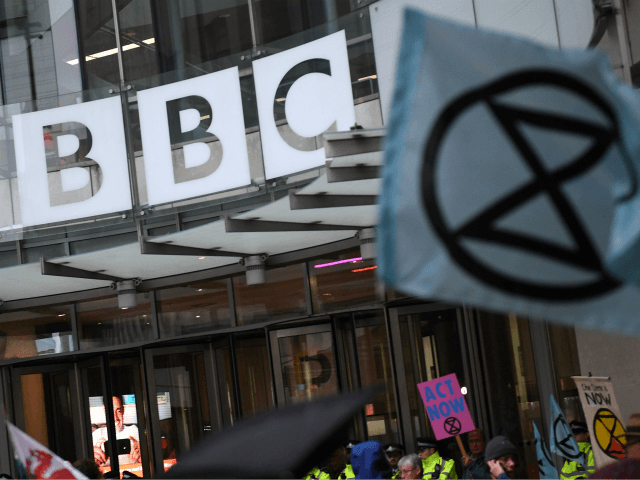The BBC-funding licence fee has seen its sharpest decline in recent history, losing some 256,000 households in just one year, as the broadcaster faces a crisis in confidence over its liberal-metropolitan bias.
The broadcaster’s annual report blamed not just licence evaders, but a rise in viewers who decide to forego watching live television altogether, streaming content instead from YouTube or services like Netflix.
In the UK, it is mandatory to pay the annual £157.50 TV licence, effectively a tax to fund the BBC, if you watch live television. Currently, it is a criminal offence to not pay the charge, with penalties resulting in possible prison time, though the government is planning to decriminalise non-payment.
Last year, 1.61 million Britons cancelled their TV licence, up from 1.38 million from the year before, according to The Times.
The loss in viewership resulted in £58 million less in revenue. Meanwhile, BBC stars have seen massive pay increases, with a report revealing that efforts to scale down the BBC have failed.
Emily Maitlis, the Newsnight host whose anti-Cummings rant was found to be in breach of the BBC’s impartiality rules, received a pay rise of more than £100,000, going from earning £260,000 a year to around £370,000.
The anti-Brexit and pro-open borders Match of the Day host Gary Lineker remains the corporation’s highest-paid employee, raking in £1.75 million to £1.755 million a year.
While Radio 2 host Zoe Ball earnt a salary increase of nearly one million pounds, and is now on £1.36 million to £1.365 million, making her the second-highest paid in the corporation. The massive pay increase comes despite Ball overseeing a fall of one million listeners after taking over from Chris Evans.
The BBC was already under fire for not only introducing charges for over-75s and laying off hundreds of staff but doing so while pledging to throw £100 million into “diverse” content, following pressure from Black Lives Matter activists.
A social media campaign, #DefundTheBBC, grew in reaction to the broadcaster’s biased reporting on the Marxist Black Lives Matter movement, in June describing a violent protest that resulted in the injuries of 27 police officers as “largely peaceful”.
Recently, the BBC rewrote the course of events during one protect, claiming that the statue of Christian philanthropist and slave trader Edward Colston had been “symbolically lowered into Bristol harbour”, whereas its own footage shows it being forcibly torn down and aggressively pushed overboard by a baying mob.
One incident that sparked widespread public backlash was the BBC deciding to perform patriotic favourites “Land of Hope and Glory” and “Rule, Britannia!” without the lyrics at the Last Night of the Proms, after alleged pressure from BLM supporters within the organisation.
A campaign led by actor Laurence Fox resulted in the BBC u-turning, introducing choirs for the pieces. However, the further damage to the broadcaster’s reputation had already been done, with reports that the Last Night’s viewership was 2.1 million — well below the average of 3.5 million from previous years.
The broadcaster again stirred controversy by airing an episode of alleged comedy show New World Order this week, where one guest made a ‘joke’ about wanting to “kill whitey”.
Former Brexit Party MEP Martin Daubney called the BBC “one head of the same beast, and that is political correctness getting out of control, a contempt for ordinary working folk, [and] a sense of national shame”.
Alluding to the Frankie Boyle programme, Mr Daubney added: “BBC comedy is now about as funny as ebola. We are hearing things about white privilege, critical race theory — this is meant to be comedy. We’re having it rammed down our throats.”

COMMENTS
Please let us know if you're having issues with commenting.